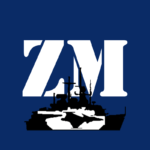Sergei Chemezov, an executive at Rostec, recently stated that the company might be forced to suspend its exports due to high demand driven by the war in Ukraine and high interest rates imposed by Russia’s Central Bank.

According to the Financial Times, Chemezov told Russian senators that, “Unfortunately, we [Rostec] cannot deliver everything [for export] on time, as it is essential to supply our army first.” Regarding interest rate adjustments, the Rostec executive added, “All profits are consumed by the interest we have to pay…Today, it’s about halting all high-tech product exports…or we need to do something else…The use of borrowed funds is simply unprofitable for businesses…If we continue like this, most companies will go bankrupt.”
Chemezov’s remarks reveal how the increasing demand from the Russian Armed Forces is pressuring Rostec, forcing it to channel almost all its production of vehicles, aircraft, equipment, and ammunition to meet wartime needs instead of selling it abroad.
Since the onset of the new invasion of Ukraine, the Russian Armed Forces have suffered significant material losses, with thousands of vehicles, aircraft, and equipment destroyed, damaged, or captured. The need to keep occupation forces supplied has compelled Moscow to expand and strengthen its network of state-owned defense companies. Despite this, the sector is facing various challenges.



Another critical issue mentioned by the head of Rostec is the lack of human resources, which also directly impacts production lines. Russia’s Central Bank has repeatedly highlighted this problem, noting that over 70 percent of companies suffer from labor shortages.
Rostec has restructured its production lines along with other conglomerates to meet the demands of the Armed Forces. For example, in 2023, tank ammunition production increased thirtyfold compared to 2022, while artillery shell production grew sixfold. Additionally, drone production quadrupled in 2023 compared to the previous year. Despite this, Moscow has been forced to turn to allied countries to meet its needs, such as North Korea, Iran, and even China.
Beijing is not only providing material to the Russian Armed Forces but also taking advantage of the Russian situation by promoting its own companies to fill market gaps that Russian companies, occupied with meeting local military demands, cannot cover.
Illustrative cover image. Credits: UAC
You may also like: The Russian Navy is preparing to incorporate a new Kilo II-class attack submarine into the Pacific Fleet









